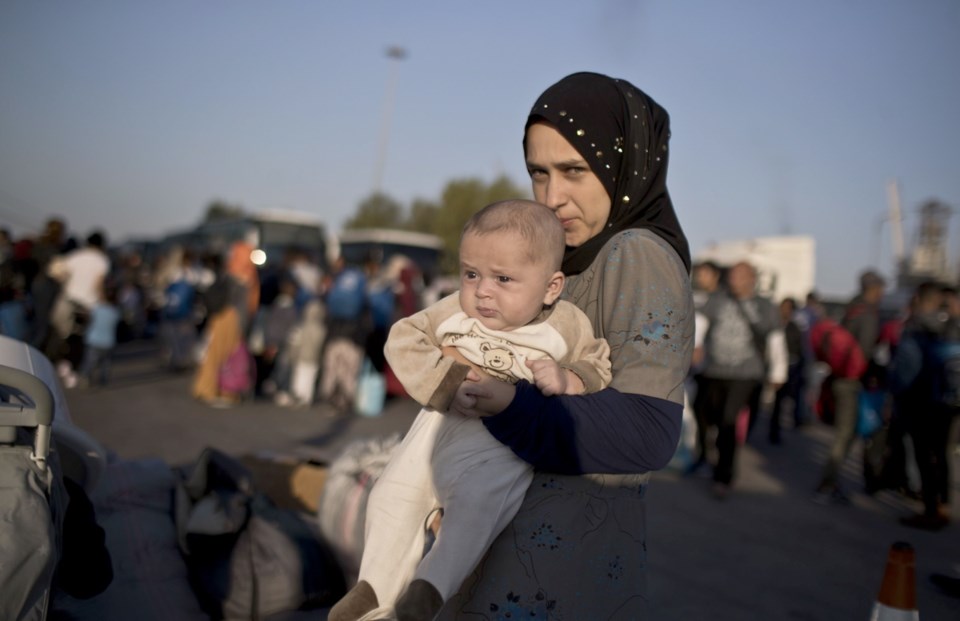In August 2018, of the 1,500 refugee spaces provided by the Canadian government for the Blended Visa Office-Referred Program, more than 1,000 were left unclaimed. Only due to the exceptional financial commitment of some philanthropic leaders did Canada move any closer to meeting these targets last year.
In 2019, the government hopes to resettle 1,650 people under this program, but without the extraordinary financial incentive from private donors, it is highly unlikely that these numbers will be reached. There is still a refugee crisis, and still a pressing need for private sponsorship groups to assist these desperate people.
The office-referred program matches refugees identified for resettlement by the United Nations Refugee Agency with private sponsors. It is a successful program, but it should not be allowed to disappear as a result of declining interest in the refugee crisis in the media.
The world witnesses unprecedented levels of displacement. According to UNHCR numbers, 65.6 million people in the world today have been forced from their homes due to conflict or persecution. More than 12 million forcibly displaced people come from Syria alone. Globally, we have 22.5 million refugees posing a fundamental challenge to the international community. The world is also home to 10 million stateless people who have been stripped of fundamental rights such as freedom of movement, safety, education or health care.
The civil war in Syria and the Rohingya fleeing violence in Myanmar are only the most visible and dramatic cases of a global surge in displacement. But the effects of climate change in the global south will only accentuate this development, making the issue of refugees one of the pivotal moral and political issues for world community in the 21st century.
Considering the scale of human suffering involved, the decline in public attention from the heightened levels in 2015-16 when the Syrian crisis was on the front pages, is perplexing. Since 2000, more than 36,000 refugees have perished trying to enter Europe. The International Organization for Migration calls the Mediterranean “by far the world’s deadliest border.” Still, refugees are dying on their perilous journey across the Mediterranean Sea.
It took the tragic death of Alan Kurdi, the three-year-old Syrian boy who washed up on a Turkish beach in September 2015, to draw the attention of the world community to the ongoing suffering of refugees. This incident also led to a public outcry in Canada and efforts to assist refugees through political pressure or civil society action. Yet public attention is short-lived and the sense of urgency to address the issue has largely faded.
Canada has traditionally been an international leader in addressing the plight of refugees. In 1979, Canada accepted more than 60,000 refugees. In 2015-16, Canadians voted in a government that ran on a promise to bringing in much higher numbers of Syrian refugees; 350 communities across Canada have welcomed refugees from the war-torn country.
In 2016, Canada resettled 46,700 refugees, the highest number since 1980. However, the intake of refugees through Canada’s settlement program has sharply declined since then. Currently, the targets for refugees in Canada are set at about 10,000 for government-sponsored and 19,000 for privately sponsored refugees annually over the next three years.
Thousands of thoroughly vetted cases have already identified by the government of Canada and UNHCR for resettlement. These cases are people in desperate need. They are families, individuals, women and children who are waiting in limbo in refugee camps and resettlement centres around the world. They wait in what can be unsafe and insecure conditions, relying on a group of strangers across the world to initiate the sponsorship.
Leaving these cases unclaimed threatens the sustainability of the BVOR program and leaves thousands of people in limbo.
Oliver Schmidtke is with the Centre for Global Studies and Colin Bennett is with the department of political science, both at the University of Victoria.
The department of political science will hold a panel at the upcoming UVic IdeaFest on March 5 — “How a rise in asylum seekers affects Canada.” The department has also decided to sponsor a refugee family under the BVOR program. Donations can be made at: chimp.net/groups/support-a-refugee-family-for-resettlement-in-victoria



